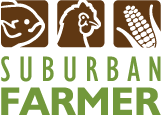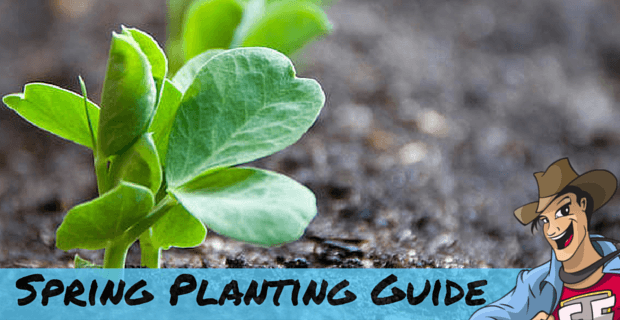This guide will tell you what you can plant in Perth, how long before you can expect produce to be ready, and give you a plan for the types of crops that you will plant next.
Spring has sprung! Warmer weather wakes us all from our winter hibernation and is motivating us to get into the garden. Why wouldn’t you in this beautiful, upful, warm weather!
Two golden rules:
- Don’t plant too early!
Late September/Early October is perfect for most plants. Start your seedlings off towards the end of July to the start of August, in a protected, warm area with dappled shade or morning sun.
- Don’t plant too late!
Get your plants established before the hot weather arrives (if it’s not nice for you, it’s not nice for them). They will be more able to withstand the heat when established and hardened before the heat comes forward. They will cope a lot better with the correct soil amendments and MULCH!!
Tips before you get started:
1) Some plants are quick to harvest and are fast to expire. If you have any plants that have expired mid-season, replace them with another fast to harvest variety. Always leave the root systems in the ground, This helps our SOIL FOOD WEB stay healthy.
2) Don’t replace long to harvest plants with another long season plant as you will severely impact the planting of the next most important planting time (winter crops). I choose dwarf beans as they are hardy, productive, fast to produce, and as they are nitrogen fixers – they improve the soils fertility, ready for the crops planted after them. Study this list and make your plan!
Spring Planting Guide
ASIAN GREENS (BOK CHOY, ChOY SUM, KAILAAN ETC)
- Plant Seedlings: Early Sept – Early Oct.
- Harvest Produce in: 10 – 14 weeks.
- Growing Season: Fast to harvest. Have them out of the ground before Christmas as they won’t survive the heat. Perfect for Stir Fry/Soups. Replace with Beans or Pea’s (January).
BASIL
- Plant Seedlings: Late Sept, Oct, Early Nov.
- Harvest Produce in: 8 – 12 weeks.
- Growing Season: Plant in early Spring. Basil will be in your garden all summer and towards the end of February will start forming seeds, becoming less sweet, the leaves will begin to thin in the very hot weather to try stave off dehydration. Great for Flavouring dishes, herbal teas but also for Beneficial bugs.
BEANS (DWARF, RUNNER)
- Plant Seedlings: Oct, Nov, Dec, Jan, Feb at the latest.
- Harvest Produce in: 10 – 14 weeks
- Growing Season: Plant in early Spring and will be producing by Christmas. Replace with another batch of Beans once they are expired and you will have dual succession crops ready to harvest in time for winter veg planting (late March). Eat the flowers as garden sweets, but not too many or you run the risk of no beans.
BEETROOT
- Plant Seedlings: Aug, Sept, Oct, November at the latest.
- Harvest Produce in: 10 – 14 weeks.
- Growing Season: Plant early Spring. Harvest before or just after Christmas. Replace with Beans. Perfect addition in salad, to make Kvass or to pickle and jar.
CAPSICUM
- Plant Seedlings: Late Sept, Oct, Early Nov.
- Harvest Produce in: 10 – 14 weeks.
- Growing Season: Plant mid Spring. Will form green fruits from January with red fruit coming forward around Feb, March.
- Replace with Garlic in April/May. Makes a great side dish when roasted and preserved in oil, vinegar and herbs.
CHIVES
- Plant Seedlings: Any Month
- Harvest Produce in: 10 – 14 weeks.
- Growing Season: All Year. You can easily get a couple of years out of the same batch. Trim back to 1 inch above soil line or snip as needed. Great for that added Onion/Garlic flavour without the kick.
CUCUMBER
- Plant Seedlings: Early Sept – Early Oct.
- Harvest Produce in: 10 – 12 weeks.
- Growing Season: Pick fruit regularly to promote additional fruiting. Replace with beans once the cucumber plant has stopped producing. I leave mine until the very last fruit is forming. Pickled, in salad or straight off the plant. Irie for staving of dehydration and packed full of Anti-oxidants and Micro-nutrients.
EGGPLANT
- Plant Seedlings: Late Sept, Oct, Early Nov.
- Harvest Produce in: 16 – 18 weeks.
- Growing Season: Long harvest time so get in early. Cut back when dormant for Winter. Do not remove unless needed. Fantastic baked and a great flavour mop for your dinner.
PUMPKIN
- Plant Seedlings: Late Sept, Oct, Early Nov.
- Harvest Produce in: 16 – 18 weeks.
- Growing Season: Plant in Spring and you will be harvesting around Autumn (March). Plant Alliums after. Save the seeds, and give the rest to the Chooks for worming help. Tasty in all forms of cooking. Leave the skin on.
RADISH
- Plant Seedlings: All Year.
- Harvest Produce in: 4 – 8 weeks.
- Growing Season: These guys are fast to harvest. Perfect for a ‘gap crop’ between early summer harvests and the onset of cool weather planting. Great little salad addition for that crunch and peppery hit. Pickled or raw.
ROCKET
- Plant Seedlings: Early Sept – Early Oct.
- Harvest Produce in: 8 – 12 weeks.
- Growing Season: Will become bitter and seed as the hot weather arrives. Rip them out or allow to self seed in January and replace with Beans. Perfect for salads and has a mighty hit of pepper for a little plant.
ROCKMELON
- Plant Seedlings: Late Sept, Oct, Early Nov.
- Harvest Produce in: 16 – 18 weeks.
- Growing Season: Fruits will ripen in the hot weather. You can tell when they are ready by simply lifting them up and rotating a little bit. If they fall straight off with no resistance, they are ready to harvest. If there is any resistance at all, they are not quite ready. Plus, you will smell the sweetness coming forward. The plant will be in the garden all summer so replace with cool weather plants at the beginning of March such as Brassicas and Alliums. Fruit salads or straight off the plant with a little mint is super yum and very healthy.
SILVERBEET
- Plant Seedlings: Early Sept – Early Oct.
- Harvest Produce in: 12 – 16 weeks.
- Growing Season: A tough customer, hardy and strong grower. Might need some extra water and shade to pull them through the Summer. A better idea is to have them out of the ground by Christmas. Replace with Beans and get ready to be planting your Winter crop on schedule in March. Stems are high in Zinc, Potassium, Magnesium, Iron and has high levels of Vitamins. Great substitute for Spinach and great eaten in soups, blanched, pastas, smoothies.
SPRING ONIONS
- Plant Seedlings: All Year.
- Harvest Produce in: 12 – 14 Weeks.
- Growing Season: All Year. Doesn’t mind the hot weather but will slow down over Winter, producing flowers and seed pods late Winter, early Spring. You can almost certainly keep the same crop for a year or more if you harvest semi regularly. Add some in a salad or soup, burger. High in Vitamin C and Calcium. Great dietary fibre addition did you know!
SQUASH
- Plant Seedlings: Late Sept, Oct, Early Nov.
- Harvest Produce in: 8 – 12 weeks.
- Growing Season: Pick fruit regularly to promote additional fruiting, watch out for overhead watering as all Cucurbits are susceptible to Mildew attack . Replace with Beans once cropping has finished towards the start of Autumn. High in Vitamins, rich in minerals like Manganese and Magnesium. Great baked or pureed. I like to think of it as a superfood.
SWEET CORN
- Plant Seedlings: Late Sept, Oct, Early Nov.
- Harvest Produce in: 12 – 16 weeks.
- Growing Season: Plant in a box formation. Perfect for THREE SISTER’S (Lugumes, Cucurbits and Corn). Water well. Hand pollinate for better cropping. Max of 2 cobs per plant. Anymore and the energy will be given to all cobs, and they will not reach fullness. You will have small to baby sized corn if more than 2 cobs per plant. Replace with Beans in mid/late January and be on target for cooler weather seedlings to replace the beans in late March. On the BBQ with butter and chives. Yummo!
SWEET POTATO
- Plant Seedlings: Sept, Oct, Nov.
- Harvest Produce in: 20+ weeks.
- Growing Season: Will be a resident of your garden for a couple of years. Harvest when needed, be careful not to fork the tubers, dig carefully. You can eat the leaves also. Great cover crop for baren grounds and is a good plant if your soil is on the poor side. High in Fibre, great for immune system building and anti-inflammatory too. Roast in oven and split down the middle. Pack with curry or mince and top with cheese, back under grill until golden and slightly burnt or, just use sour cream and chives, it’s delicious.
TOMATO
- Plant Seedlings: Early- Mid Oct, Nov to Early November.
- Harvest Produce in: 12 – 16 weeks.
- Growing Season: Plant deep and prepare for long wait before you can harvest ripe fruit. I tend to plant my tomatoes in separate pots or soil, so as to not provide the change for Root Knot Nematodes. This is a common issue when planting Solanaceae. Folate and Potassium, Vitamins like C and K. Anti-oxidant and hydrating. Eat raw, off the truss or bake, stew, roast, preserve or make passata sauce and jar them.
WATERMELON
- Plant Seedlings: Late Sept, Oct, Early Nov.
- Harvest Produce in: 12 – 16 weeks.
- Growing Season: Will ripen in the hot weather, same technique as Rock Melons for harvesting. Watermelon varieties will be in the garden all summer, and may need shade and extra water to avoid fruit burn. Part from anti-oxidants, vitamins and minerals, these guys also have Amino Acids to the brim. Building blocks for life and health. Raw, in salads, candied, baked, it’s all good. Eat the seeds as they are massively chokka blocked with nutrients and has all the Vitamin B Complex.
ZUCCHINI
- Plant Seedlings: Late Sept, Oct, Early Nov
- Harvest Produce in: 10 – 14 weeks.
- Growing Season: Pick fruit regularly to promote additional fruiting. Either small, bigger or even mallow sized are all great to eat. Careful of too much top watering. Fantastic raw or cooked. Replace with Beans in mid January. Great for anti-oxidant and anti-inflammatory properties. Cooked, raw, pureed, doesn’t matter as long as you’re eating it.
And lastly, always Give Thanks for Life.
Ras Mark SUBURBAN FARMER

